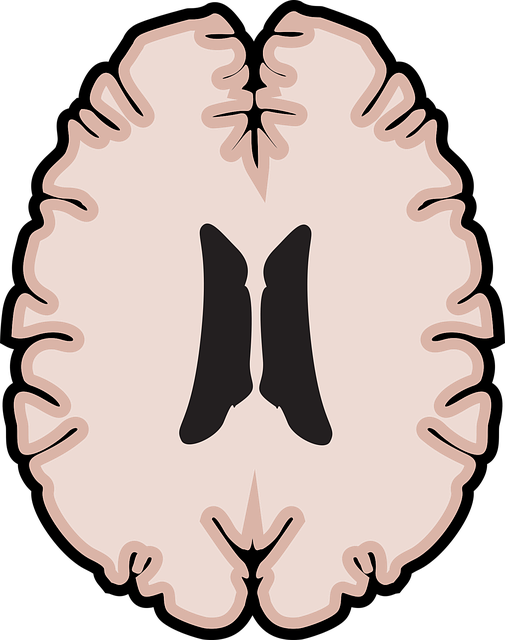Englewood Codependency Therapy (ECT) offers a holistic approach to mental health, combining cognitive-behavioral therapy, mindfulness practices, and emotional support groups for codependency recovery. By fostering self-awareness, emotional regulation, and positive thinking through exercises like gratitude journaling and art therapy, ECT empowers individuals to break unhealthy patterns, reduce stress and anxiety, and cultivate resilience. Structured daily routines and consistent practice are key to optimizing benefits, with progress tracking facilitating continuous growth and lasting mental well-being improvements.
Positive thinking exercises are powerful tools for personal growth, offering a holistic approach to well-being. This article explores the transformative potential of such practices, with a focus on Englewood Codependency Therapy as a guiding framework. We’ll delve into the science behind positive thinking, design effective exercises, and provide practical tips for implementation. By understanding these principles, individuals can embark on a journey of self-improvement, cultivating resilience and enhancing their overall mental health, much like Englewood Codependency Therapy intends.
- Understanding Positive Thinking and Its Impact
- Englewood Codependency Therapy: A Holistic Approach
- Designing Effective Positive Thinking Exercises
- Implementing the Exercises: Tips for Success
- Tracking Progress and Sustaining Positive Changes
Understanding Positive Thinking and Its Impact

Positive thinking is a powerful tool that can transform lives and cultivate resilience. It involves shifting one’s mindset to focus on optimism, gratitude, and constructive self-talk, even in challenging situations. This simple yet profound practice has been backed by research, demonstrating its ability to enhance well-being and overall life satisfaction. For individuals struggling with codependency, as often seen in Englewood Codependency Therapy, positive thinking exercises can be a game-changer. By fostering empathy building strategies and promoting self-care, these practices encourage individuals to detach from negative thought patterns and build healthy boundaries.
Integrating positive thinking into daily routines can help reduce stress and anxiety, two common challenges faced by many. Effective Stress Reduction Methods, such as mindfulness and cognitive reframing, are often incorporated into Mental Wellness Coaching Programs Development. These programs guide individuals through exercises that cultivate a more positive outlook, leading to improved mental health and enhanced coping mechanisms. By understanding the impact of positive thinking, individuals can begin their journey towards personal growth and a brighter perspective on life.
Englewood Codependency Therapy: A Holistic Approach

Englewood Codependency Therapy (ECT) offers a holistic approach to mental health, focusing on breaking down unhealthy patterns and fostering positive relationships. This therapeutic method recognizes that codependency is often rooted in early life experiences and traumatic events, and it aims to provide individuals with the tools needed to navigate their emotions effectively. ECT combines various techniques, including cognitive-behavioral therapy, mindfulness practices, and emotional support groups, to facilitate personal growth and healing.
Through structured programs designed to promote coping skills development, ECT helps participants process past traumas and create healthier attachment styles. Mental health education plays a pivotal role in this process, empowering individuals to understand their emotions and break free from cycles of codependency. By addressing the underlying causes and implementing evidence-based practices, Trauma Support Services within ECT contribute significantly to long-lasting recovery and improved overall well-being.
Designing Effective Positive Thinking Exercises

Designing effective positive thinking exercises involves tailoring activities that cater to individual needs and preferences. At its core, this process should align with evidence-based practices such as those employed in Englewood Codependency Therapy. This therapeutic approach emphasizes self-awareness and emotional regulation skills crucial for fostering positive thought patterns. Exercises could range from simple mindfulness meditations designed to quiet negative ruminations to creative outlets like journaling or art therapy that encourage the expression of gratitude and hope.
For optimal impact, these exercises should be integrated into a holistic framework that includes public awareness campaigns development focusing on mental health literacy. By promoting understanding and reducing stigma, such initiatives facilitate open conversations about emotional healing processes. Moreover, regular practice of positive thinking exercises can lead to improvements in mood management, enabling individuals to navigate life’s challenges with resilience and enhanced well-being.
Implementing the Exercises: Tips for Success

Implementing positive thinking exercises requires a structured approach to ensure maximum benefits and success. Start by incorporating them into your daily routine; consistency is key in cultivating a positive mindset. Begin with simple practices like gratitude journaling, where you reflect on and appreciate the positives in your life each day. This Mental Wellness Journaling Exercise Guidance can be a powerful tool for self-care, helping to shift your focus towards hope and resilience.
Englewood Codependency Therapy emphasizes the importance of regular practice. Make these exercises a non-negotiable part of your day, much like brushing your teeth. Over time, you’ll notice an improvement in your overall well-being, which can significantly contribute to Depression Prevention. Remember, every small step towards positive thinking makes a difference, and with dedicated practice, you can achieve lasting changes in your mental health. Additionally, consider the Risk Management Planning for Mental Health Professionals to ensure these practices are tailored to your unique needs and integrated seamlessly into your therapeutic journey.
Tracking Progress and Sustaining Positive Changes

Tracking progress is a vital component of any positive thinking exercise regimen, especially when utilizing methods like Englewood Codependency Therapy. By regularly assessing your thoughts and behaviors, individuals can identify areas where they’ve made significant strides, as well as aspects that may need further attention. This self-awareness, fostered through exercises in resilience building, allows for continuous growth.
Maintaining newly formed positive thought patterns requires dedication and persistence. Incorporating regular Self-Awareness Exercises can help sustain these changes over time. Trauma Support Services often emphasize the importance of consistent reflection and practice to ensure that progress made is not only temporary but becomes an integral part of one’s daily life, leading to lasting transformations.
Implementing positive thinking exercises, as exemplified by Englewood Codependency Therapy, can significantly transform one’s life. By adopting a holistic approach that combines understanding, designing, and tracking progress, individuals can cultivate a more optimistic mindset. These exercises not only enhance well-being but also foster personal growth and sustainable positive changes. Remember that consistent practice is key; with dedication, one can harness the power of positive thinking to navigate life’s challenges with resilience and grace.














